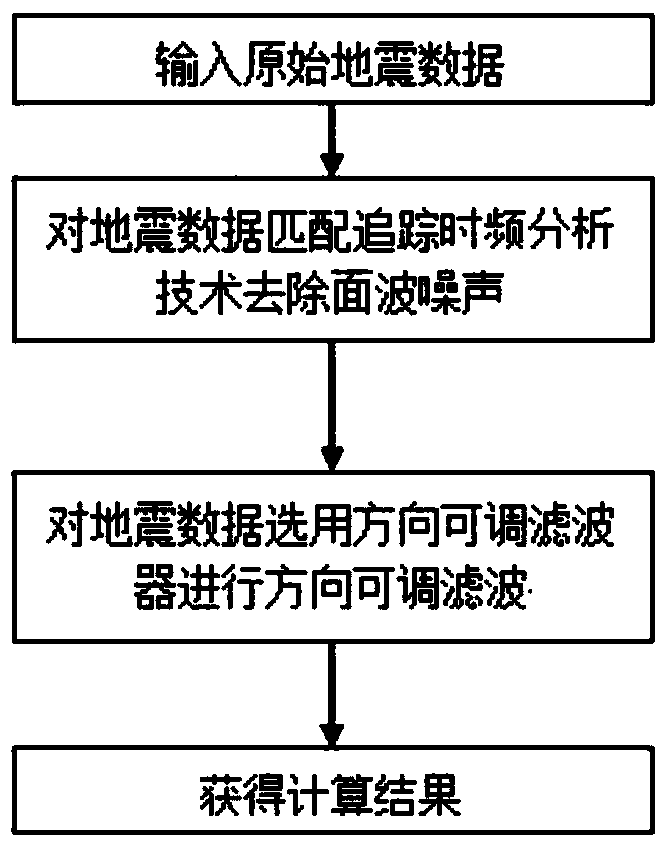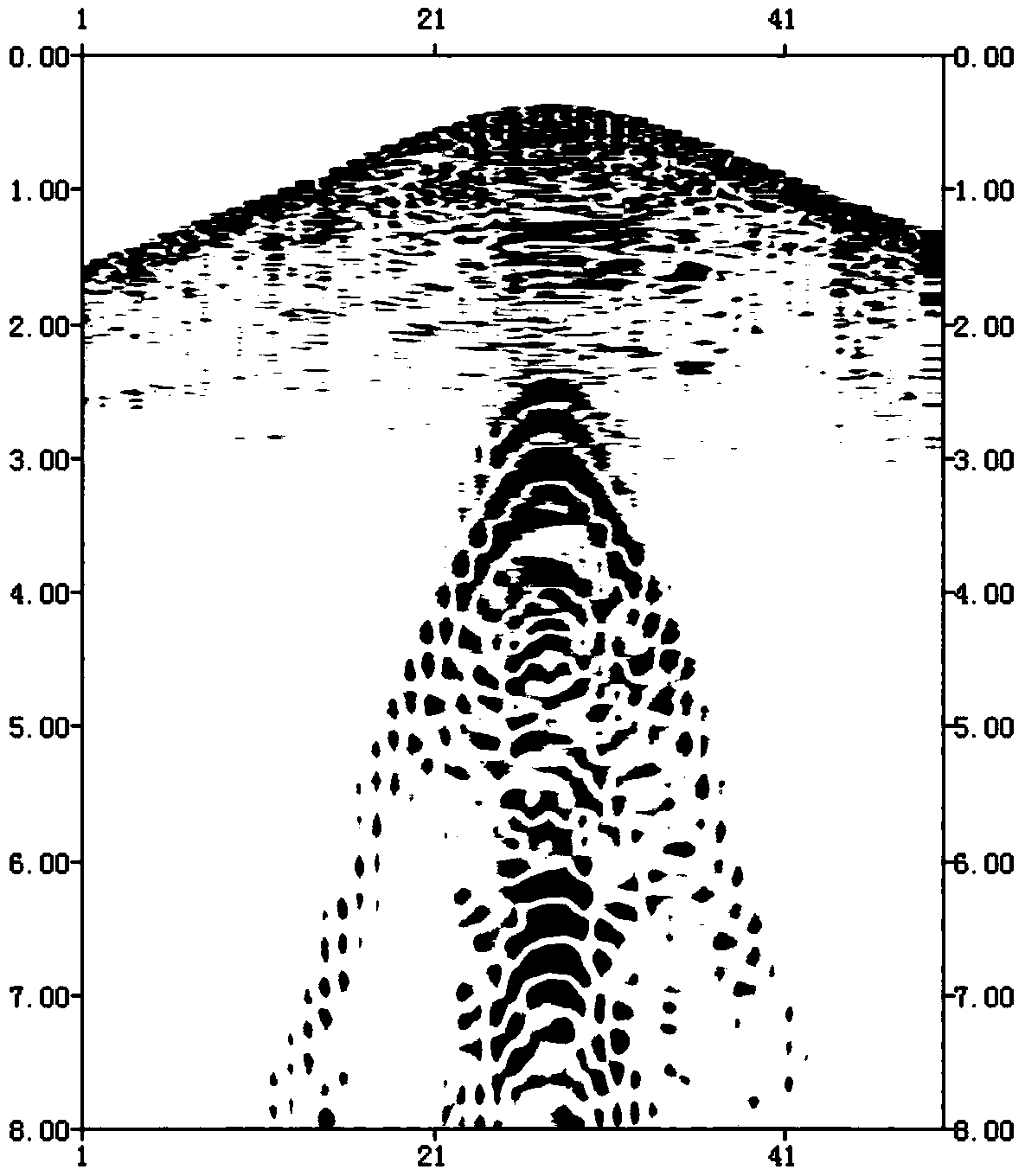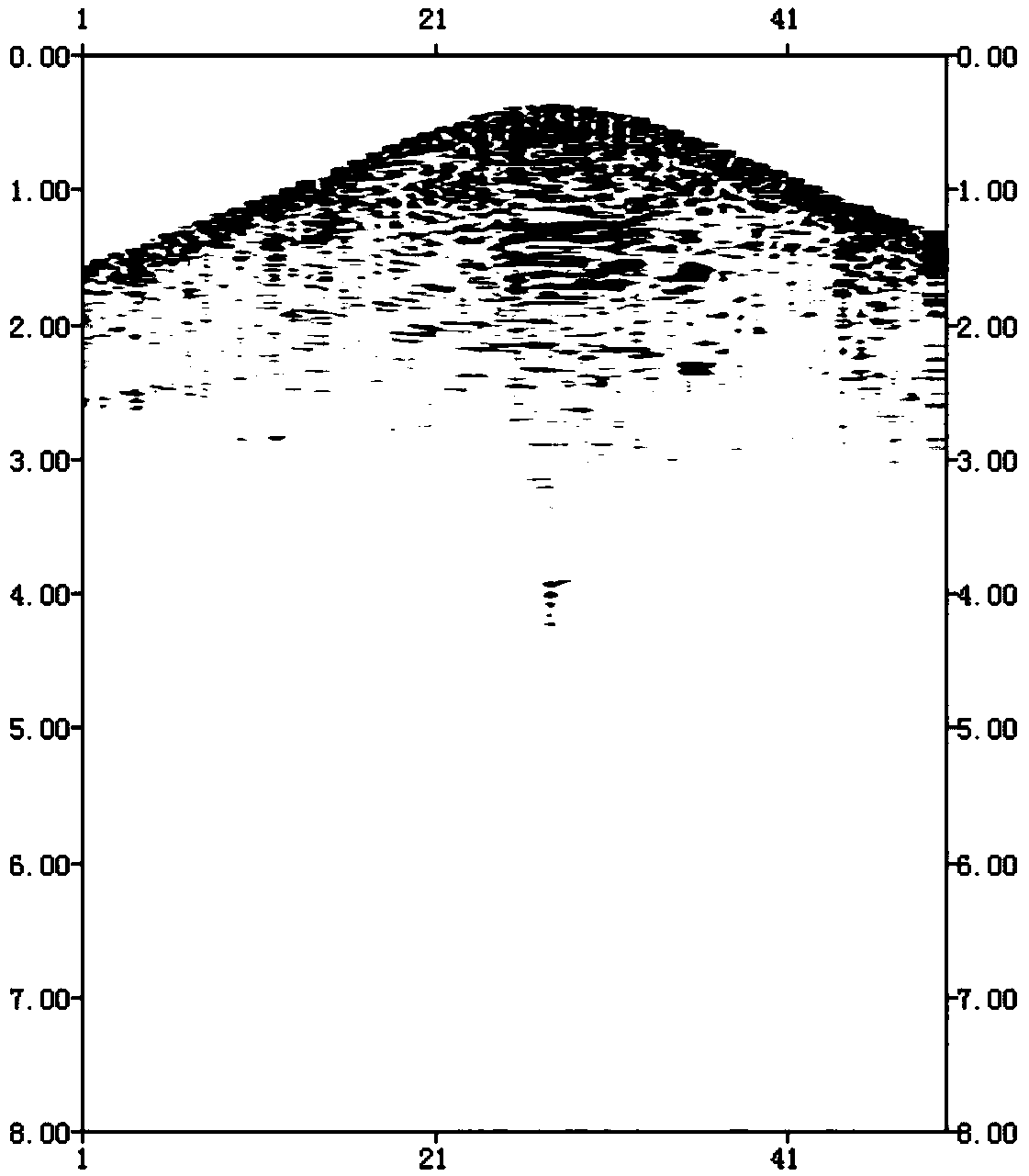A Method for Removing Near-Surface Scattered Surface Waves
A scattering surface and near-surface technology, applied in the field of exploration geophysics, can solve problems such as poor results, and achieve the effect of improving the signal-to-noise ratio
- Summary
- Abstract
- Description
- Claims
- Application Information
AI Technical Summary
Problems solved by technology
Method used
Image
Examples
Embodiment
[0029] Such as Figure 1 to Figure 7 As shown, a method for removing scattered surface waves near the surface includes the following steps:
[0030] S1. Input the seismic record data, analyze the characteristics of the original data, and suppress the surface waves in the seismic record through the matching and tracking time-frequency analysis method to obtain a time-frequency map;
[0031] S2. Determine the area where the surface wave to be suppressed is located in the time-frequency diagram, perform frequency spectrum analysis on the time-frequency diagram, and determine the frequency range corresponding to the surface wave;
[0032] S3. According to a rough distribution area of the surface wave on the time-frequency map of each seismic record, transform the seismic trace into the time-frequency domain, and use the mask function to filter the seismic signal in the time-frequency domain; then filter the filtered The result is inversely transformed and returned to the time d...
PUM
 Login to View More
Login to View More Abstract
Description
Claims
Application Information
 Login to View More
Login to View More - R&D
- Intellectual Property
- Life Sciences
- Materials
- Tech Scout
- Unparalleled Data Quality
- Higher Quality Content
- 60% Fewer Hallucinations
Browse by: Latest US Patents, China's latest patents, Technical Efficacy Thesaurus, Application Domain, Technology Topic, Popular Technical Reports.
© 2025 PatSnap. All rights reserved.Legal|Privacy policy|Modern Slavery Act Transparency Statement|Sitemap|About US| Contact US: help@patsnap.com



